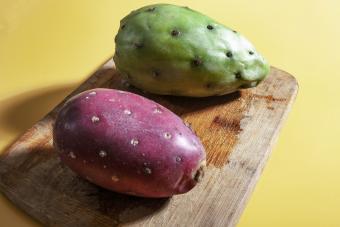
The answer to "how much does mulch cost" depends on what type of mulch you will be using for your project, the quantity and the availability of the mulch in your area. If you're planning a landscaping project, knowing what kind of mulch works best will help you determine the final cost.
Pricing Different Types of Mulch
The cost of mulch will vary from year to year, depending upon availability. To get the best prices, call around local nurseries and garden centers before purchase. In addition, if you pick it up yourself the cost will be less, as opposed to that which is delivered to your home.
Organic Mulch
Organic mulches are those that are made from plant materials. Some are readily available and can even be made for no cost from your own waste. Others need to be processed by commercial facilities. The following are common organic mulches that are available for low or no cost to you.
- Wood Chips and Nuggets - Commonly found at most nurseries and garden centers for under $12 for 2 cubic feet. Pine is the wood most often used in this type of mulch. On the downside, pine mulch may attract bugs that will feast on your plants.
- Coco Bean Shells - Smells great, at least until the first rainfall; then the delicious odor of chocolate will be gone. Costs about the same as wood chips, but it is more difficult to find in some areas.
- Yard Waste - Doesn't cost anything. Place your leaves and lawn clippings in a compost pile and use it as needed. This can also be mixed with purchased mulch as well.
- Straw and Hay - One of the least expensive types of mulch, averaging $4 per bale. It decomposes quickly though and needs to be replaced each year. Works well for seeding lawns, when preparing a garden for the spring and around vine plants (such as grapes) before winter. If you live in a windy area, heavier mulch will work better.
- Pine Bark and Needles - This type of mulch works well for acid-loving plants. It is a loose mulch, so water can flow freely to plant roots below. The one drawback is that in wet or windy areas, the mulch may blow away. The cost for this type of mulch is about $10 per 2 cubic feet.
- Oyster Shells - If you live in an area where oyster shells are readily available, they may be free for the taking. They make a pretty mulch around plants, are semi-permeable and can also be used for paths and walkways.
Inorganic Mulch
Inorganic mulch is made from materials other than plants. It is often more dense or less permeable so that it inhibits the growth of weeds. The following can be found at most gardening centers:
- Landscape Cloth - Often laid on the ground at the time of planting, it is used to inhibit the growth of common weeds in residential areas. It is semi-permeable, which allows air and water to flow through it. It can be used in gardens or around trees and shrubs. Rocks or other mulch are usually placed on top of landscape cloth to improve the appearance. The cost for landscape cloth varies, depending upon the thickness. The average cost is $18 for a 20-foot x 3-foot roll.
- Plastic - Very effective at inhibiting the growth of any weeds, even those that are difficult to kill in rural areas like thistle and burdock. Water and air cannot penetrate the plastic, which is usually 3 or 4 mil thick. It shouldn't be used around plants unless a large circle is cut out around each plant, allowing for air and water to circulate freely. Otherwise the plant may develop a shallow root system, making it susceptible to damage in the winter. This barrier is best used for landscaping projects, such as patios or seasonal pools. The cost is around $30 for a 15-foot x 3-foot roll.
- Rocks and Gravel - The cost varies greatly, depending on where you live. This is usually purchased by the truckload, though some garden centers sell 50-pound bags for under $10 each.
- Rubber Mulch - Becoming a very popular mulch because it inhibits rot and doesn't attract unwanted insects. It can be used in a variety of applications, from playgrounds to mulch for landscape plants. Rubber mulch also comes in a variety of colors to suit anyone's taste. The cost for a bag of black or red rubber mulch is comparable to that of wood chips or nuggets- approximately $12 per 2-cubic feet. Colored rubber mulch, such as purple or yellow, may be a few dollars more.
Purchase Mulch From a Reputable Dealer
Now that you know the average prices of mulch, you'll have a general idea of the final cost of your landscaping project. One final note of caution, however: Be sure to purchase organic mulch from reputable outlets. Otherwise you may expose your plants to undesirable insects and plant diseases.







